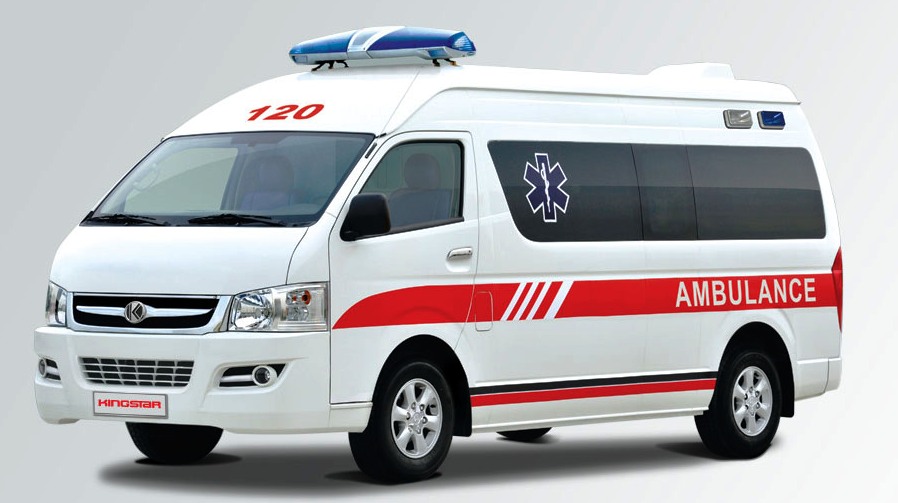OBJECTIVES:
- Upon completion of this lesson, you will be able to:
- Describe the emergency medical services (EMS) system in the area you reside.
- List six duties and/or responsibilities of the medical first responder (MFR).
- Define negligence and give an example as it relates to EMS.
- Define abandonment and give an example as it relates to EMS.
- Define implied consent and expressed consent.
- List the five rights of the patient.
- List the basic equipment for MFR.
Emergency Medical Services (EMS ) & Medical First Responder (MFR)
2. The Emergency Medical Services (EMS) System
What is your definition of an EMS system?
3.Services (EMS) System:
Copy the diagram from the transparency in the space below:

Draw an organizational chart of you local Emergency Medical service system (EMS):
4. Medical First Responder (MFR)
Definition: The first person on the scene of an incident with emergency medical care skills, typically trained to the most basic EMS level.
5. Qualities of the MFR
- Responsibility
- Sociability
- Honesty
- Pride (hygiene, uniform, personal appearance)
- Emotional stability
- Professional demeanour
- Good physical condition
- Demonstrated ability
6. Duties of the MFR
- Protect your safety and the safety of your crew, the patient, and bystanders.
Gain access to the patient.
Assess the patient to identify life-threatening problems. - Alert Additional EMS Resource
- Provide care based on assessment findings.
- Assist other EMS personnel.
- Participate in record-keeping and data collection as received.
- Act as liaison with other public safety workers.
- Perform patient packaging and preparation for movement and transportation.
7. Legal Aspects
7.1 Local Legislation and Protocols
Local legislation
Protocols
7.2 Responsibilities of the MFR Notes
MFR responsibility refers to the legal and ethical obligation that all persons who practice an art or profession must be accountable before the law for any acts that cause harm as a result of carrying out that activity.
Scope of care: Actions that are legally allowed by the MFR when providing patient care
Duty to act: The contractual or legal obligation of the MFR to provide care.
Breaches of Responsibility
Abandonment: Discontinuing Emergency Medical Care without making sure that another health care professional with equal or better training has taken over.
Negligence: Failure to provide the expected standard of care, causing injury or death of the patient.
7.3 Rights of the Patient
To solicit and receive pre-hospital care.
Confidentiality regarding personal Information and condition
To pursue legal recourse for acts of negligence, abandonment,
In some situations, the patient has the right to refuse care. The patient may be required to sign a refusal form in the presence of a witness.
CONSENT
Implied Consent: Consent assumed on the part of an unconscious, confused or seriously injured patient or, in a minor 11 patient (according to local legislation) that cannot make 11 .decisions. J1
It is assumed that if the person were conscious, he/she would authorize care. Likewise, one assumes that if a relative or the minor’s guardian were present, he/she would authorize care.
Expressed Consent: Permission that must be obtained from
Every responsive, competent adult patient before providing emergency care. and/or violations of confidentiality.
- Basic Equipment of the MFR
8.1 Basic Personal Protective Equipment (PPE)
What are your personal Protective Equipment.
8.2 Basic Equipment for Pre-Hospital Care
- Dressings
- Bandages
- Tape
- Eye guard
- Tourniquet
- Blankets
- Sheets
- Pillow
- Splints
- Bandage shears or scissors
- Oxygen and accessories (optional)
- Backboard
- Cervical collars (all sizes)
- Pen light
- Blood pressure cuff (sphygmomanometer)
- Stethoscope
- Disinfectant (beta-dine)
- Sterile water or normal saline
- Activated charcoal I Aluminium foil
- Tongue depressor
- Childbirth kit
- Oropharyngeal airways (all sizes)
REFUSAL FORM
I———S/O or D/O———-or————–Wife of
—–/—–/——at (location)———————-
willing fully refuse the treatment offered to me or to the patient ——————– who is (relation) —————— to me. By signing this refusal form 1 hereby take
all the responsibility of whatever danger may occur to myself or to the patient or to j the society and can be challenged in any court of law in future. I also admit by i signing this form that the statement of the form has been read to me and | understand the complete meaning and text of this form. The reasons of the refusal are as follows:-
1.__________________________
2.__________________________
3.__________________________
Witness No 1 Name
Patient/ Guardian Name
Address__________________________
Address__________________________
Contact number _ Signature__________________________
Contact number Signature __________________________
Witness No 2 MFR Name
Name__________________________
Address__________________________
Address/Organization\___________________________
Contact number Signature__________________________
Contact number__________________________
signature __________________________
Post-Test
The EMS System and the Medical First Responder
- Describe the local emergency medical services (EMS) system
- List six duties and/or responsibilities of the medical first responder (MFR).
- Define negligence and give an example as it relates to EMS.
- Define abandonment and give an example as it relates to EMS:

Alex Smith, a seasoned medical technician with 15 years in ambulance services, writes crucial first-aid tips and emergency care insights on arescuer.com.
